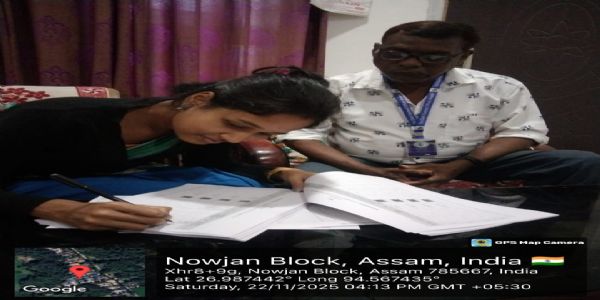
Lucknow,
22 Nov (HS): Union Minister of State for Science and Technology Jitendra Singh
said on Saturday that judicial leadership and global jurisprudence must develop
quickly to face future concerns such as the Deep Ocean, space debris, and
artificial intelligence. The
minister stated that four critical improvements are necessary, beginning with
improving international environmental legislation, regulating new technology,
modernizing obsolete legal frameworks, and instilling intergenerational justice
in judicial thinking.
The
statements were made during the 26th International Conference of Chief Justices
of the World, which was held at the City Montessori School in this city. The occasion was also attended by astronaut
Shubhanshu Shukla. According to Singh, international environmental law can no
longer work in silos as countries face interrelated issues such as climate
change and ocean pollution.
He
emphasized the importance of rules to manage future technologies like as
artificial intelligence, quantum computing, and automation, stating that
society must tame themselves (and know where to stop). Singh, referring to
topics such as space debris and cyber dangers, stated that numerous situations
confronting courts today were unimaginable two decades ago, but judges are
increasingly being forced to rule on them without established legal
precedent. He argued that legal
structures must be revised to reflect current circumstances.
The
minister also emphasized the inclusion of intergenerational fairness in
jurisprudence, stressing that court judgments addressing current issues have
long-term effects. The consequences of a judgment will be felt by future
generations. Climate change and
space-related challenges will outlive us, he added.
Singh
emphasized that jurists now work at the intersection of legal interpretation,
scientific understanding, and moral duty. You can replace anything, but you
can't replace integrity, he said, adding that even the prudent use of AI
technologies necessitates a high level of integrity in the face of conflicts
like privacy vs monitoring and liberty versus national security.
Regarding
the issues faced by modern technologies, he stated that artificial intelligence
and machine learning are affecting mental processes to such an extent that
youngsters may be unaware they are being affected. This, he claims, makes judges' jobs even more
demanding.
When
asked about global issues, Singh stated that India confronts dangers from
climate change, melting glaciers, cyber vulnerabilities, and ocean damage.
India,
which has one of the world's longest coastline ranges at approximately 12,000
kilometers, has prioritized maritime development. The minister further added that Prime
Minister Narendra Modi emphasized their relevance in his Independence Day
addresses in 2022 and 2023.
Singh
stated that the country has long undervalued the richness hidden in the seas,
which ranged from metals and minerals to biodiversity and fisheries, but the
present administration had prioritized deep-sea exploration through the Deep
Ocean Mission. On India's accomplishments in space and technology, he stated
that the government has built sophisticated equipment to detect space debris
and has opened up the space industry to private participation as a result of
recent reforms.
He
stated that India's space economy, which was formerly small, is now valued at
roughly USD 8 billion and is likely to increase four to five times in the next
years as entrepreneurs reach millions and billions of dollars in sales. Singh
emphasized India's remarkable gains in biotechnology, claiming that the
national industry has risen from USD 10 billion when the Modi administration
took office to roughly USD 200 billion now.
He
stated that the country is following a three-pronged 3E
biotechnology strategy that focuses on the environment, employment, and
economics, and that India is one of the first countries to take such an
approach. He remembered how India was previously technologically behind the
United States, recalling the late advent of television, but now ranks among the
select few working on quantum technologies, artificial intelligence,
cybersecurity missions, and the Deep Ocean Mission.
During
the COVID-19 epidemic, India even created a DNA vaccine and distributed it
worldwide as a goodwill gesture, he said. The minister stated that India, which
was previously not taken seriously for its health practices, has emerged as a
worldwide leader in preventive healthcare in recent years and is now producing
a number of vaccinations, including those targeting cervical cancer.
Singh
further said that older traditional views linked children's illnesses to
God's grace or the results of karma, but today India is at the
forefront of scientific health treatments.
Singh
finished by stating that wise administration of vital systems confronting
mother earth at this age and time will necessitate global
collaboration among judges, politicians, and scientists led by integrity and a
sense of duty to future generations.
Hindusthan Samachar / Abhishek Awasthi








